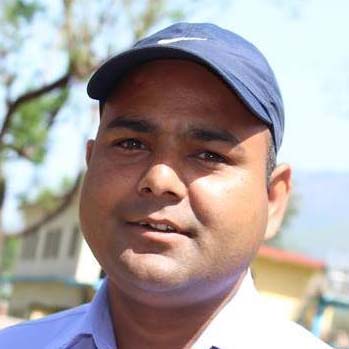National
Maoist insurgency : War-induced trauma still haunts Rukum residents
Eleven years after insurgency in the country, citizens of Rukum are still left with mental scars.
Krishna Prasad Gautam
Most victims of the war-torn area in Khara VDC have been suffering from severe mental illness. The villagers have found it extremely difficult to move on from the carnage, leaving several mentally unstable or incapacitated. A household of three in the VDC has long been going through mental problems. Apparently, Jaya Bahadur BK of Khara-6 along with his sons, Lal Bahadur and Sher Bahadur, were taken ill after police set their house on fire during the conflict period in 1999. Early symptoms of staying aloof and in fear later turned into full blown mental illness over the last five years, said local teacher Opendra Oli. The three are under medication and visit the counselling centre at Khara Sub-Health Post on a regular basis.
According to Nepal Janajagaran Manch (NJM), an organisation helping the victims, they have identified 41 people suffering from mental illness in Khara. A victim of police brutality, Birjeet Pariyar of Khara-5 was left with severe head injuries and also suffers from mental illness for the last five years. According to the victim’s younger brother, Birjeet had shown signs of depression in the early stages and was later rendered mentally ill. Birjeet regularly visits a counselor and his brother has been administering his medication. Similar is the fate of Manisha Khadka of Khara-5. Suffering from mental issues, she screams out of fear when alone and has the tendency to talk to herself.
The NJM in coordination with the District Public Health Office (DPHO) has been providing medical assistance to the conflict victims. According to in-charge of the sub-health post Tek Bahadur Raut, many more could possibly be suffering from the illness as they live in hiding due to fear of social stigma. “Most of them developed mental problems incident after being unable to handle the pressures of life following the horrific sight of the war,” Raut said.
Bishnu Sharma, a counsellor for the victims since the last two years, said they had kept Khadka under observation, providing counselling sessions on a regular basis. Meanwhile, DPHO Chief Dr Bhojraj Gautam said it was imperative for patients to attend regular counselling sessions, medications, and treatment under the direct observation of medical personnel.




 26.61°C Kathmandu
26.61°C Kathmandu














